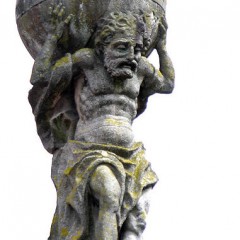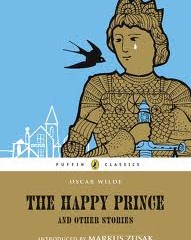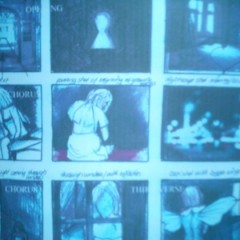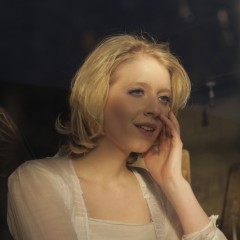This song is one of my favourites from I Am Not The Night. We added it to the album late; it was written just before we started recording. It came from a handful notes, originally: the A major chord with a rising scale in the right hand, and a D sharp, played over the arpeggios. It wasn’t one of those songs born of a specific aim. It was just those notes, and the fact that I’d chosen a major key, which was rare for me at the time, that made me want to keep working on it.
My friend Leonie was getting married that summer, and the song I was going to sing for her and Mikael’s first dance was At Last, by Etta James. The sheet music rested on the piano for a few months, in a casual sort of way. And while I was playing around with those four bars, the A chord, the sharpened D, with no particular sense of where the song was going, my eye landed on the bold capitalised print above the keyboard, and maybe part of the page was a bit obscured. Instead of AT LAST, I read ATLAS. And I thought about Atlas the Titan, holding up the world, and how his shoulders must have ached from the strain of it. And how we can’t always get things right; how things aren’t always easy.
 And I think it just came from there.
And I think it just came from there.
The image of the girl in the garden was I think taken from two places. One, the beautiful tale of growth and discovery that is the Secret Garden (I remember vividly the trailer for the film, with Mary saying ‘if there’s a key, there must be a door’), and two, Oscar Wilde’s short stories, in particular The Happy Prince. I had both of these pictures in mind: the lost garden full of hidden, organic magic, and the lonely prince, gilded all over with thin leaves of fine gold, who for eyes… had two bright sapphires.
 ‘Time After Time’ was in homage to Cyndi Lauper, whose music still renders me stricken with awe. (In particular I love Boy Blue, from True Colours). The rhyme of ‘crazy’ and ‘easy’ I took from an old Second Person song called Senseless Sentences (I also use the words sense and nonsense in verse three); both Atlas and Senseless Sentences were written, many years apart, for the same person.
‘Time After Time’ was in homage to Cyndi Lauper, whose music still renders me stricken with awe. (In particular I love Boy Blue, from True Colours). The rhyme of ‘crazy’ and ‘easy’ I took from an old Second Person song called Senseless Sentences (I also use the words sense and nonsense in verse three); both Atlas and Senseless Sentences were written, many years apart, for the same person.
The refrain in the chorus begins: ‘take what you want and pay for it’… I knew it came from somewhere; I actually thought it was used in a Jilly Cooper novel. Later, I remembered where I got it from: Hercule Poirot’s Christmas by Agatha Christie. I didn’t remember that I took the quote from there until I happened to reread the book. On further exploration, it turns out the (apparently) Spanish proverb ‘Take what you want and pay for it, says God’ appears three times in Christie’s work, according to the blog AllAgatha; what’s interesting, however, is that a search of the internet doesn’t seem to yield the Spanish original. The phrase has also been used by Ayn Rand, in the context of causality and responsibility; again, she quotes it as a Spanish proverb but without the source. Strangely enough, she wrote a novel called Atlas Shrugged… which I also had no idea about until this evening.
When we made a video for Atlas, the director Annick based her treatment on Kafka’s Metamorphosis. Here is part of her storyboard.

 In the video I grow insectlike wings, designed by the miraculous Natasha Lawes (the wings are just visible in this still).
In the video I grow insectlike wings, designed by the miraculous Natasha Lawes (the wings are just visible in this still).
